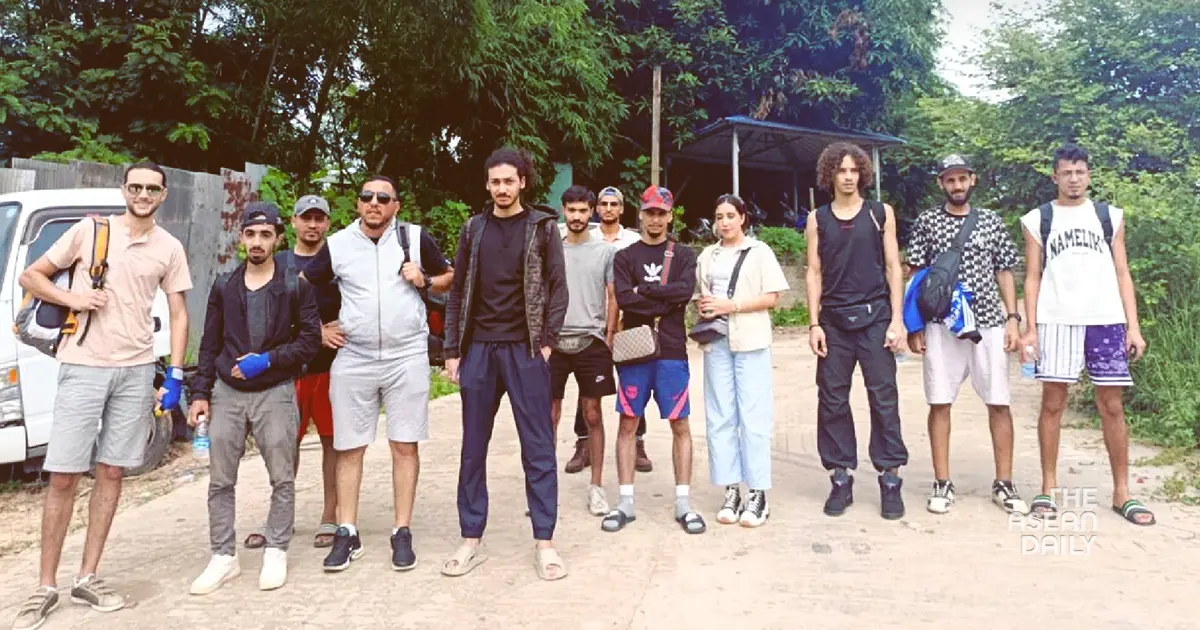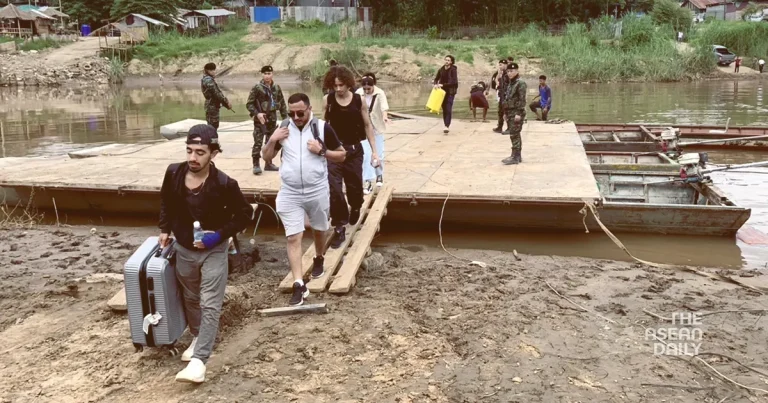5-7-2024 (YANGON) A group of 21 Moroccan nationals found themselves trapped in a nightmarish ordeal after being duped into believing that well-paying jobs in Myanmar’s casinos awaited them. Their harrowing experience has shed light on the insidious operations of transnational criminal networks preying on vulnerable individuals.
On Friday, 12 Moroccan citizens, who had been offered employment in Myanmar’s casinos but ended up working for call-center gangs in the border town of Myawaddy, were brought to safety in Thailand via the Tak border checkpoint. The operation was a collaborative effort between the Royal Thai Army (RTA) and the Embassy of Morocco, which had reached out to Move Forward MP Rangsiman Rome in May, seeking assistance in rescuing 21 Moroccans believed to be trapped in Myanmar.
Rangsiman, who chairs a House committee on security and border affairs, played a pivotal role in facilitating the rescue mission. The Army coordinated with local NGOs and humanitarian agencies to identify the victims, assess their living conditions, and negotiate their release with the casino owner.

After interviewing the victims, officials discovered that all 21 individuals had fallen prey to a call center scam originating in Morocco. While seven of them had secured their freedom after their families paid off the gang, two victims chose to continue working under the exploitative conditions.
Expressing gratitude for the Army’s efforts, Rangsiman Rome reminded authorities that the issue of human trafficking and forced labor in neighboring countries remains a pressing concern, with many Thais and foreigners still trapped in slave-like conditions.
“It’s time for the government to take this problem seriously. [Rescuing them] should be made part of the national agenda,” said Rangsiman, a party-list MP from the opposition Move Forward Party. “Measures should be implemented to protect people from being deceived by these scamming gangs,” he emphasized, underscoring the need for comprehensive action to combat the multifaceted challenges posed by these criminal networks.




